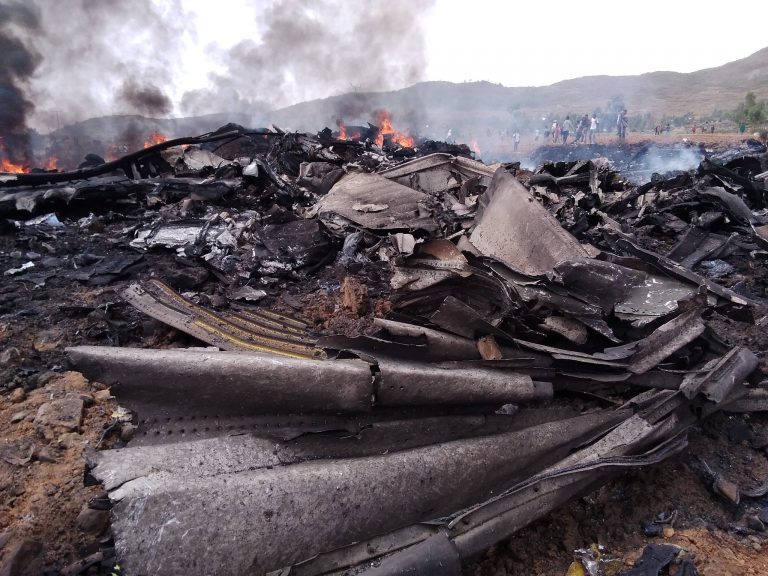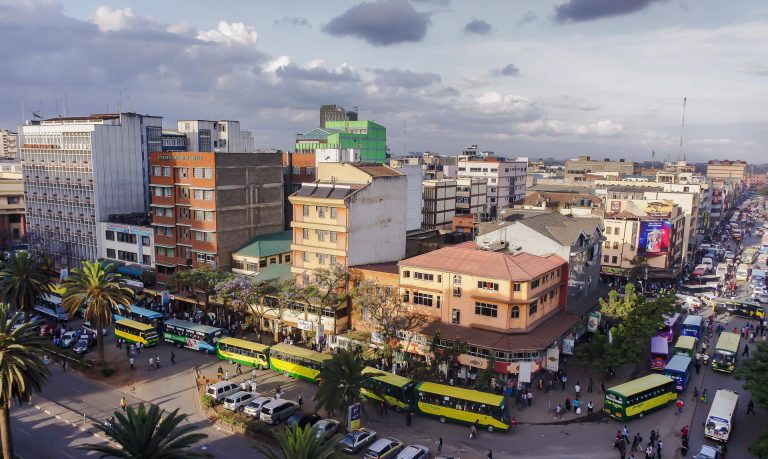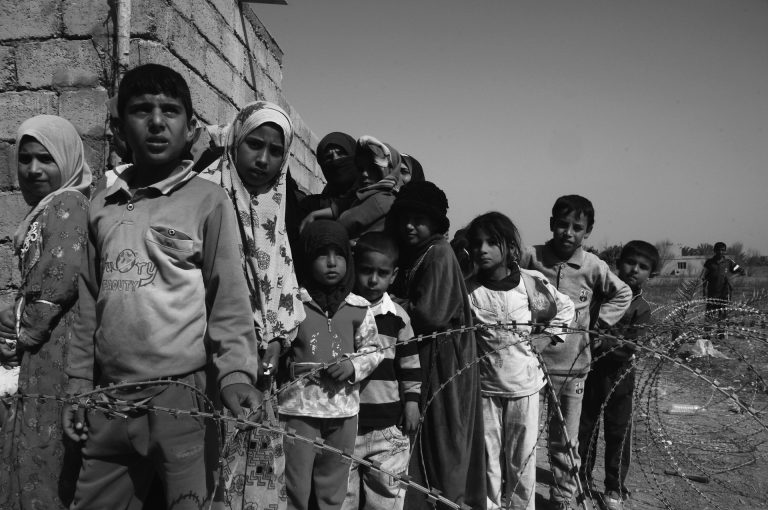In August 2020, the Trump administration froze US$130 million of foreign assistance to Ethiopia because the Ethiopian government repeatedly rejected Egyptian proposals about how the Grand Ethiopian Renaissance Dam (GERD) is to be filled, and what share of waters of the Blue Nile the Ethiopian people are entitled to use. So far, Ethiopia has asserted its inviolable right to exercise sediment control and flood control over the Blue Nile, as well as invoked its right to appropriate usage of the Nile waters for irrigation and electricity generation. As mentioned in a previous post, Egypt had invaded Ethiopia in an attempt to annex the Abbay River basin, and thus gain control of (and determine) how water in the Blue Nile is used in Ethiopia. This invasion was financed by European creditors and was led by an American commander, with Americans and Europeans being involved in planning the Khedivate imperial campaign against the Black African people living in the Upper Nile basin region.

Prime Minister of Ethiopia, Abiy Ahmed Ali (PICTURED) announced in June 2021 that Ethiopia “is scheduled to build more than 100 small and medium dams in several regions of the country as part of the budget plan for the next Ethiopian year”. This has drawn the ire of the Egyptian government.
PHOTO CREDIT: FDRE Office of the Prime Minister
Geopolitics Press proposes that the Government of Ethiopia (GoE) should continue to engage with the USG and European governments, as well as build a good relationship with the Republican Party (GOP) as it waits for the mid-term American elections that are likely to result in GOP dominating Congress. It is even possible that President Joe Biden will be a one-term president, and the next President will be a Republican. Republican politicians who have been maligned by the mainstream American media will be more sympathetic to GoE, which has suffered denigration from the same media.
Is using GERD for Electricity Generation an Act of “International Thuggery”?
Since 2020, Americans have spearheaded efforts to force Ethiopia to acquiesce to Egypt’s proposals (and even demands). Meanwhile, Egypt has continued to denounce Ethiopia for building GERD. Former ministers – who are less guarded about their statements – have expressed the most vocal opposition to GERD. This includes Mohamed Nasr El-Din Allam, who headed the ministerial docket of irrigation and water resources. In October 2020, he remarked that Ethiopia is “bullying” Egypt, and its plan to use GERD to generate electricity is an act of “international thuggery”, and even beseeched the International Community to rally behind Egypt. Allam added that Egypt still has an option of taking Ethiopia to the International Court of Justice if mediation by the African Union fails. So far, Ethiopia has refused to sign any agreement that legally binds it to give Egypt and Sudan the option of seeking recourse in international arbitration in case of any dispute concerning the usage of Nile waters in Ethiopia.
In an opinion piece that he penned and published on October 8, 2020, by Ahram Online, Allam blamed “Egyptian miscalculations and mistakes” and “Ethiopia’s regional ambitions” for the GERD crisis. He then states that Ethiopia took advantage of Egypt’s moment of weakness to embark on the GERD project. He also insists that this (GERD) crisis will “recede when Egypt regains its strength and demonstrates its will and determination”.
Interestingly, Allam deduces evidence of Egyptian weaknesses as Egypt’s inability to stop the Nile Basin Initiative from being adopted, as well as an inability to stop the signing of the Entebbe Agreement. On a conciliatory note, Allam warns Egyptians against impulsiveness and negative “opinions bandied around over social-networking platforms” that Egypt should declare War on Ethiopia. He even clarified that “this is not a decision that should be taken by armchair generals” (ibid). This reiterated remarks made by President Abdel Fattah al-Sisi in July 2020 when he warned Egyptians to “not make threats and idle talk” and “don’t say we’ll do such and such a thing”. Sisi then revealed Egypt’s current strategy of negotiations with these words: “We are negotiating, and this is a battle that will take time, because we will not sign anything that isn’t in our interest” (ibid).
In April 2021, President Sisi struck a less conciliatory tone when he warned Ethiopians to not “touch a drop of Egypt’s water, because all options are open”. So, to what degree is Egypt entitled to the Blue Nile? This is a matter of open debate, and different schools of thought have different views with nationalists being partial to Ethiopia, while pan-Arabists are biased toward Egypt.
Is Ethiopia’s Plan to Export Electricity tied to Security Needs or desire for Regional Economic Integration?
As explained in a previous post, River Nile is critical to Egypt because most Egyptians live in the Egyptian Nile Basin. For Ethiopia, GERD is critical for flood (and sediment) control, irrigation, and electricity generation. It also serves as a symbol of national unity and pride. So, does GERD have a strategic value to Ethiopia? The answer is yes.
Ethiopia has courted its neighbors, including Kenya, Somalia, Eritrea, and South Sudan; and this is linked to Ethiopia’s security and economic needs. With an operational GERD, Ethiopia can offer cheap electricity to these nations, and in the process bind them to Ethiopia’s security orbit. This can provide an opportunity for Ethiopia to spearhead an enforceable regional security framework. For Ethiopia, there is a need to secure alliances that will oblige its neighbors to deny bases to rebel groups that are fighting against GoE.
The regional alliance can also lay the foundation for greater economic integration of the region, which would afford two synergistic advantages to Ethiopia – containing insurgents (which frees economic resources) and increase in its economic output due to economies of scale created by regional economic integration.
At the moment, Ethiopia can count on successes in Kenya where the Egyptian government has failed to rally the support of President Uhuru Kenyatta, despite some members of the Kenyan Intelligence and Military being hostile to Abiy’s administration. Presently, Kenya’s diplomatic corps remains solidly pro-Ethiopia, and is quite suspicious of the real intentions of the anti-Ethiopian group in KDF and NIS that has been using obtuse civil society organizations, like the Civil Society Reference Group, as fronts for war-mongering and lobbying for Kenya’s government to support rebels fighting against GoE.
Egypt has been unable to get nations in Ethiopia’s near abroad, i.e Eastern Africa, to support its GERD stance. The exception is Sudan which has a border dispute with Ethiopia over farmlands in the al-Fashqa Triangle. Without securing a security pact with Sudan, Ethiopia cannot surround itself with allies who are bound to it by security pacts. Most importantly, Sudan becomes a potential security threat if it allows Tigrayan rebels to use its territory for resupply, or in a worst-case scenario, allows Egypt to attack Ethiopia from Sudanese territory.
How can an Egypt-Ethiopia war proceed, and what risks does it carry for both nations? This is explored in the following scenario generation.
What if Egypt goes to War with Ethiopia – A Probable Scenario
If Egypt invades Ethiopia, its goal will be to prosecute a total war that will topple the Ethiopian government and bring to power a government friendly to Cairo. If Tigray secedes, then Egypt can secure rights to host military bases, which can serve as launchpads for invasion of what remains of Ethiopia. They will also give Egypt the opportunity to conduct air raids against Ethiopian armored formations. It’s highly unlikely that the Egyptian Armed Forces (EAF) will bomb the dam, or even destroy it by military means, and the reasons for this are explained later.
To secure reliable supply routes, the EAF may have to help Tigrayan ethno-nationalists to invade Eritrea and capture seaports that will give the EAF access to the Red Sea. This will allow the Egyptian Navy to resupply EAF troops, as well as enable Egyptian warships and submarines to harass merchant ships carrying goods destined for Ethiopia.
Relatedly, Egypt can deploy any of its Mistral-class amphibious assault ships as a helicopter carrier and mobile airbase. This can give EAF the power to limit Ethiopia’s access to international shipping.


In any sea battle, the nascent Ethiopian navy – which was conspicuously formed in 2018 and can use Eritrean and Somalia ports – will be no match for the Egyptian navy. However, when the war reaches this stage of a naval engagement, European, American, and Chinese pressure will be felt as none of them would want trade traffic to be disrupted in the Red Sea.
A bottleneck for Egypt is that its submarines are equipped mainly with anti-ship weapons, which limits their effectiveness in attacking land-based targets. This reduces their utility to either naval battles or logistic functions.
In any type of long-distance military campaign, Egypt will be hard-pressed with logistic challenges and surmounting costs of moving tens of thousands of Egyptian soldiers from their bases in the Nile Delta to Sudan (which will most likely ally itself with Egypt) and Northern Ethiopia. For its naval and air assets that can be based in Berenice Military Base, which is less than 1000 kilometers from GERD; their effectiveness will be limited if Egypt cannot gain a lodgement in Ethiopia or a beachhead in Eritrea.
Equally, initial air raids against GERD will require Egyptian warplanes to confront the non-stationary, radar-equipped air defense nest made up of road-mobile, quick-reaction SPYDER (Surface to-Air-Python and Derby) medium-range systems that Israel installed in 2019. SPYDER can easily shoot down Egyptian Rafale and F-16 warplanes, thus blunting Egyptian’s advantage of air superiority. Additionally, Egypt will need to get overflight clearance from Sudan, Djibouti, or Somaliland; and this can easily tip off Ethiopian intelligence. Without this air cover, Egyptian ground troops – who are relatively inexperienced in mounting coordinated division-level long-distance ground campaigns – will have trouble holding territory for long, especially if Ethiopia enforces mass mobilization and launches a coordinated counter-offensive.

CAPTION: Ethiopia’s highly mobile medium-range SPYDER air-defense system can avoid being targeted by Egyptian warplanes, while retaining the capability to shoot down Egyptian Rafale and F-16 warplanes, which are the pride of the Egyptian air force. IMAGE CREDIT: Wikipedia.
If losses of military hardware are not replenished by the US, Egypt may be forced to abandon its armed campaign. This highlights the risks and costs of settling the GERD issue using military force. For now, EAF needs to preserve its image, which is tied to its political authority. Losing its image through military setbacks in Ethiopia would greatly damage the authority of the Egyptian government, and expose it to open revolts.
It is not known if Ethiopia possesses medium-range, anti-radiation air-to-air missiles, such as R-27ER or R-77, which can be loaded on Ethiopian Su-27 warplanes and then be used against Egyptian warplanes. If Ethiopia has these missiles, then Egyptian air superiority over Ethiopian skies can be challenged. Still, the Ethiopian airforce has been degraded qualitatively by the ongoing GoE-TPLF war as most of the experienced fighter pilots were Tigrayan, and most withdrew their services and to their credit, TPLF has preserved this trained and experienced combat force for future use, even piloting warplanes for EAC nations.
For Sudan, it may choose to let Khartoum fall to an Ethiopian counter-offensive if Ethiopia mobilizes and deploys a volunteer army (similar to what the Chinese did in 1950 to fight the American-led International Coalition in Korea). There is a need to recall that the Ethiopian constitution allows the government to enforce compulsory conscription clauses that would allow Ethiopia to raise a large army within a short period of time. Abiy Ahmed alluded to this when he said: “If there is a need for war with Egypt because of the Grand Ethiopian Renaissance Dam, we are ready to mobilize millions of people” and then emphasized that “no force can prevent Ethiopia from building this dam”.
Furthermore, the capability of the Egyptian Air Force to operate far from Egyptian soil has been tested in Libya, and it can be deduced that its impact in helping Egypt’s ally, General Khalifa Haftar, to rollback armed Islamists backing the Government of National Accord, has been limited. In Sinai, Egyptian special forces, including the vaunted Thunderbolt (El-Sa’ka) forces, have suffered setbacks in their campaign against Ansar Bait al-Maqdis, which later swore allegiance to the Islamic State and became the Islamic State – Sinai Province (Wilayat Sinai).
For USG, are Ethiopian Lives Less Valuable than Egyptian and Israeli Lives?
The afore-described is a scenario generation of what may happen if Egypt declares war on Ethiopia so as to limit Ethiopian use of the Blue Nile. So far, the American government has supported Egypt’s agenda of limiting Ethiopian usage of Blue Nile waters. American support for Egypt on the GERD issue was reiterated in May 2021 when Secretary of State, Antony Blinken, during a meeting with President Sisi, affirmed “United States’ commitment to Egypt’s water security and…(need) to resolve the dispute over GERD”.
Acknowledgeably, American support for Egypt’s policy on Ethiopia is predicated on the need to incentivize Egypt to remain an ally of Israel. It can therefore be deduced that the lives of Ethiopians are considered to be not as worthy as the lives of Egyptians and Israelis.
Which War would Egypt Choose?
Why would Egypt choose Total War over Limited War? According to Geopolitics Press, the reason for this is simple – destroying GERD does not destroy the will of the Ethiopian people to use the Blue Nile, as they can build diversion channels to redirect the Nile water to the semi-arid farmlands of Ethiopia, and thereby reduce the volume of Nile water reaching Egypt. Moreover, Ethiopia can build dozens of medium-sized irrigation dams for storing water from the Blue Nile, which as expected will reduce water flow to Egypt.
In fact, GoE has been building 12 new dams, including dams on the Rib, Zarema, Magech, Gebba, and Didessa rivers, which are part of the Abbay (Blue Nile) drainage basin. Moreover, Abiy Ahmed announced in June 2021 that Ethiopia “is scheduled to build more than 100 small and medium dams in several regions of the country as part of the budget plan for the next Ethiopian year”. This drew the ire of the Egyptian government, and the spokesperson for the Egyptian Foreign Ministry, Ahmed Hafez, openly accused Ethiopia of selfishness and decried that “Ethiopia thinks the Nile River and other international rivers it shares with neighboring countries are to be used to serve its interests alone”.
If GERD is filled, Egypt can expect the quality of water it receives to decrease because it will contain more pollutants, including fertilizers and pesticides, which accumulate due to the concentrating effect of damming flowing water.
Muslim Brotherhood on GERD
Away from probabilities, could EAF have drawn up a plan to use military force to influence how Ethiopia uses the Blue Nile in Ethiopian territory? The answer is yes, and back to probabilities, it is likely that former President Mohammed Morsi (before his ouster) directed EAF, which was then led by General Abdul Fatah al-Sisi, to come up with such a plan. However, such a plan would need a pliant government in Sudan, which means that Egypt must seek means of influencing politics in Khartoum, including finding ways to undermine politicians and leaders who are hostile to Egypt’s interests.
Under Morsi’s rule, the Egyptian Muslim Brotherhood proposed a proxy conflict in which Egypt would arm insurgents and rebels to destabilize Ethiopia. Another option considered in 2013 was to deploy Egyptian commandos to sabotage the dam, which was then under construction. Some Egyptian politicians even thought that intimidation would scare Ethiopians to stop building the dam (ibid). In October 2016, Getachew Reda blamed Egypt for providing “training and financing to the Oromo Liberation Front”. This shows the continuity of Egyptian policy towards Ethiopia, even when power shifts from an autocratic secular administration to Muslim brotherhood Islamists, and then back to a military-backed authoritarian secular regime.
Realism and Need for Engagement with the West
For Ethiopia, countering Egypt’s plan to undermine its Nile interests requires GoE to use defensive realism to accumulate military power, while offensive realism can allow GoE to secure alliances with Upper Nile Basin nations. Ethiopia also needs to build partnerships with nations that are located in Egypt’s near abroad. This can require Ethiopia to strengthen ties with Israel, Iran (which controls Syria), Greece, Turkey, and even Algeria. Of the Sunni-majority nations in the Arabian Gulf, Ethiopia has little influence on their policies, and nations like the Kingdom of Saudi Arabia and the United Arab Emirates may allow EAF to station its airforce squadrons on their soil.
In the domain of international alliances, Ethiopia should seek good ties with Russia and China, as they can easily resupply depleted military goods on credit while protecting Ethiopia against UN sanctions at the United Nations General Assembly (UNGA). Likewise, it can build a support network inside the US Congress that can stonewall congressional approval for arming Egypt with weapons that can devastate Ethiopian infrastructure. This support network can even attenuate support that the Biden administration is ready to provide to Egypt, and this is possible if it is proved that undermining Ethiopia’s interests will drain political capital from the Democratic Party.
The reliability of Kenya can be tested if Ethiopia requests permission to warehouse its critical military assets in Kenyan territory or train its soldiers in Kenya to protect them from hostile air campaigns. Though Kenyans will support Ethiopia, and even lobby for the Kenyan government to provide as much support as possible to the Ethiopian people, GoK will still be forced to factor in Kenya-Egypt bilateral ties. At the moment, Egypt is the second-largest bilateral trading partner for Kenya in Africa, with bilateral trade volume between the two nations reaching US$528 million in 2020 according to data published by Trading Economics. Ethiopia-Kenya bilateral trade in 2017 was US$126.06 million, which is the latest data provided by Trading Economics.
Concerning Egypt and GERD, President el-Sisi has proved himself as a rational actor who prioritizes international diplomacy over strategic military operations. For now, prospects of a sudden initiation of armed conflict with Ethiopia are remote. Still, Egypt has some limited window period for taking definite action if it still counts on USG support.
At the moment, the Biden administration is still bogged down at home with corrosive political factionalism, and campaigns are heating up for the next Mid-term elections where the Democrats need the support of the Black Caucasus to stem the GOP comeback. How can this benefit or undermine Ethiopia?
Geopolitics Press proposes that GoE should continue to engage with the USG and European governments, as well as build a good relationship with GOP as it waits for the mid-term American elections that are likely to result in GOP dominating Congress. It is even possible that President Joe Biden will be a one-term president, and the next President will be a Republican. Republican politicians who have been maligned by the mainstream American media will be more sympathetic to GoE, which has suffered denigration from the same media.








This is so amazingly organized geopolitical analysis of Horn Africa. Thank you and keep it up.